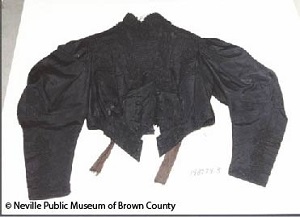Native American Heritage Month: Ada Deer
Ada Deer was born in Keshena, WI as a member of the Menominee Tribe in 1935. She lived most of her first eighteen years of life on the Menominee Indian Reservation in a cabin without electricity or running water. Her mother instilled in her a drive and passion to be a strong advocate for Native American rights. Ada was the first Menominee to earn an undergraduate degree from the University of Wisconsin and the first Native American to receive a Master of Social Work degree from Columbia University.
She went on to become the first woman chair for the
Menominee Tribe in Wisconsin. She played a major role in the Menominee
Restoration Act of 1972, which officially returned the Menominee Reservation to
federally recognized status. She acted as a spokesperson in Washington, D.C.
and lobbied to return federal recognition and protection to the tribe.
She was then elected chairperson of the Menominee
Restoration committee and had the task of making the transition back to
reservation status. There were many frustrations during the process. Eventually
in 1976, the tribal roles were validated, and an electorate was created to vote
on a constitution and bylaws. Soon after this process, Ada resigned.
Ada later went on to teach at the University of Wisconsin
and eventually worked as a legislative liaison for the Native American Rights
Fund in Washington, D.C. She became the first American Indian to run for
statewide office in Wisconsin as Secretary of State. In 1993, Ada became the
first Native American woman to be appointed assistant secretary of the U.S.
Department of the Interior, as head of the Bureau of Indian Affairs. She helped
set federal policy for more than 550 federally recognized tribes while in
office.
“I knew that when I became the Assistant
Secretary, that I would have a hard time. All the “-isms” were immediately
against me from day one: sexism, racism, elitism, classism. Women have their [proper
place] in society and being American Indian was another whole thing. I plowed
ahead anyway but it was very hard, it was an ordeal everyday, and it was a lot
of physical strength and psychological strength and endurance and I did as much
as I could despite all the “isms” and the barriers that people put up to
prevent me from doing things.”
Segment from “Interview with Ada
Deer.” Interviewed by Robert Lange Wisconsin State Historical Society.





Comments
Post a Comment